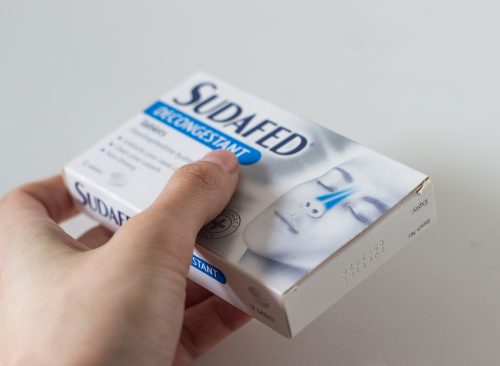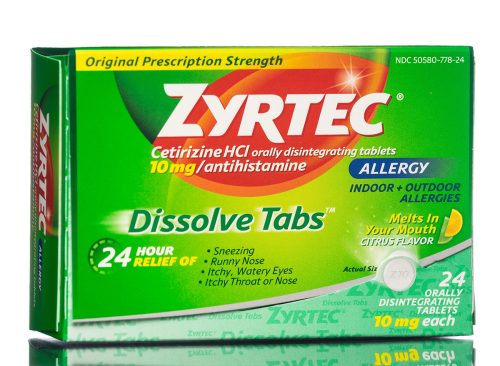These Cold Medicines Don’t Work at All, F.D.A. Just Warned. Use These Instead, Say Doctors
Before you take Nyquil, Tylenol, and Sudafed decongestants, read this.

Bad news from the cold medicine aisle: The FDA’s autonomous Nonprescription Drugs Advisory Committee unanimously ruled that oral phenylephrine does not effectively work as a decongestant. This substance is a frequently used component in OTC drugs, including but not limited to those marketed under the labels Nyquil, Tylenol, and Sudafed. Read on to see what the agency said and what what to use as a decongestant instead.

It’s not that the medication isn’t safe; it’s that it isn’t effective. While the FDA is not obligated to adhere to the committee’s advice, it had previously shared its own findings supporting the conclusion that, despite being safe, oral phenylephrine does not serve its purpose effectively, even at elevated dosages. This determination could potentially lead to the withdrawal of products containing oral phenylephrine from the market until they are redeveloped.

Dr. Mark Dykewicz, an allergist and immunologist at Saint Louis University School of Medicine, told the New York Times that pseudoephedrine, available in products such as Sudafed, can effectively alleviate congestion, though it may cause side effects including sleep disturbances, jitteriness, or increased blood pressure. Additionally, nasal decongestant sprays like Afrin or those with phenylephrine can provide relief but should only be used for a maximum of three to five days to avoid rebound congestion, a condition where the nasal passages swell further. However, steroid sprays containing fluticasone (like Flonase) or triamcinolone (found in Nasacort) are safe for extended use and are accessible over-the-counter.

For individuals with allergies causing the congestion, oral antihistamines such as Zyrtec, Claritin, or Allegra might be beneficial. To determine if congestion stems from allergies or a viral infection, individuals should observe additional symptoms, advised Dr. Mark Aronica, an expert from the Cleveland Clinic, to the New York Times. Presence of symptoms like sore throat, fever, or body aches typically indicate a non-allergic cause.

Inhaling steam can potentially aid in reducing nasal congestion. The warmth and moisture can help to thin the mucus in the nose, making it easier to expel. To try this method, you can boil water and transfer it to a large bowl. Drape a towel over your head to create a mini steam room and inhale deeply for several minutes. Adding a few drops of eucalyptus or peppermint oil can offer additional relief. Steam inhalation is a natural approach and can be done a few times a day to alleviate congestion.

Keeping well-hydrated can play a significant role in easing nasal congestion. Drinking fluids such as water, tea, or juice helps to thin the mucus in the nose, allowing it to drain more easily and reducing the pressure in your sinuses. Moreover, it aids in keeping the throat moist, which can help reduce irritation and discomfort. Try to increase your fluid intake when you’re feeling congested, including warm beverages that can provide a comforting effect.

Utilizing a saline nasal spray can be an effective tool in battling nasal congestion. Saline sprays help to increase the moisture in your nostrils, potentially reducing the thickness of the mucus and helping to decrease irritation and inflammation in the nasal passages. It’s a drug-free solution that you can use multiple times a day, and it’s safe for both adults and children. You can find saline sprays in drug stores or make a homemade version using salt and distilled water.
RELATED: Surprising Signs You’ve Already Had COVID

Incorporating hot and spicy foods into your diet can sometimes act as a natural decongestant. Foods that contain a good amount of spice can help to thin mucus, providing a temporary relief from congestion. Common ingredients that have this effect include garlic, onions, ginger, and chili peppers. However, this method is not suitable for everyone, especially those with sensitive stomachs or gastritis, so proceed with caution and consult with a healthcare provider if you’re unsure.














